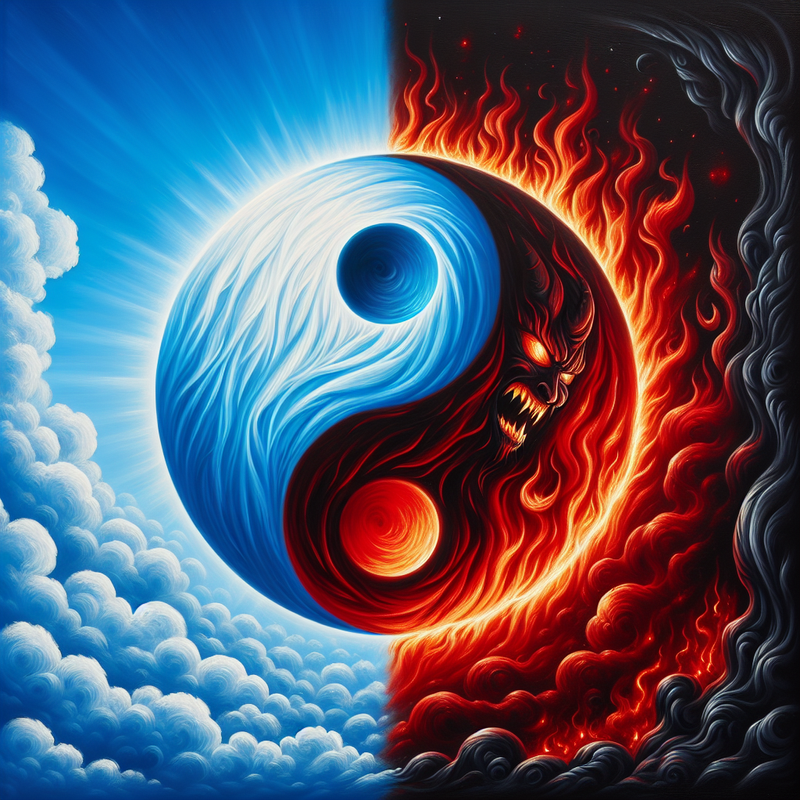What’s the Problem of Evil, Anyway?
At its core, the problem of evil asks a simple yet profound question: If God is all-good, all-knowing, and all-powerful, why does evil exist in the world? It’s a bit like asking, “If chocolate is so wonderful, why do we have broccoli?” We want to understand the balance between the sweet delights of existence and the bitter realities of suffering.
Philosophers have often framed the problem of evil in a classic way. Imagine a debate stage with three contenders: God, Evil, and Humanity. God stands there with a shining halo, proclaiming love and goodness. Evil, shadowy and sneaky, lurks in the corners, causing chaos. And then there’s Humanity, scratching its head, wondering how these two can coexist.
- The Existence of Evil: We see suffering, pain, and injustice all around us. From natural disasters to personal tragedies, the evidence is all too real.
- God’s Attributes: If God is all-powerful, surely He could prevent evil. If He’s all-good, wouldn’t He want to? So why doesn’t He?
Now, let’s put on our detective hats and explore how various thinkers believe God might address this pesky problem.
- Free Will: One popular explanation is free will. Imagine a world where everyone is programmed to be good—like robots with a “nice” button. It would be boring, right? Free will allows us to choose, but it also means we can choose poorly. So, evil exists because we sometimes make bad choices. Thanks, humanity.
- Soul-Making: Another idea is that the existence of evil serves a purpose—it’s a way for us to grow. Just like lifting weights makes our muscles stronger, facing challenges can help us develop virtues like courage and empathy. So, in a way, suffering might just be the universe’s version of a personal trainer.
- Mysterious Plans: Some believe that we can’t fully understand God’s plans. It’s like trying to read a novel while someone keeps flipping the pages. We see snippets of the story, but the grand design is beyond our comprehension. Trust the author, they say.
- Ultimate Justice: Many faiths propose that there will be a time when justice is served—an afterlife or a cosmic balance where good triumphs over evil. So, while we may face challenges now, there’s hope for a brighter tomorrow.
While the problem of evil is complex and often frustrating, it’s also a reminder of our shared humanity. We all grapple with suffering and joy, and these experiences shape who we are. By engaging with this dilemma, we can foster empathy, compassion, and understanding.
In the end, whether through free will, personal growth, divine mystery, or future justice, the conversation about evil invites us to explore deeper questions about life, purpose, and our place in the universe. So, let’s embrace the journey—chocolate, broccoli, and all.

